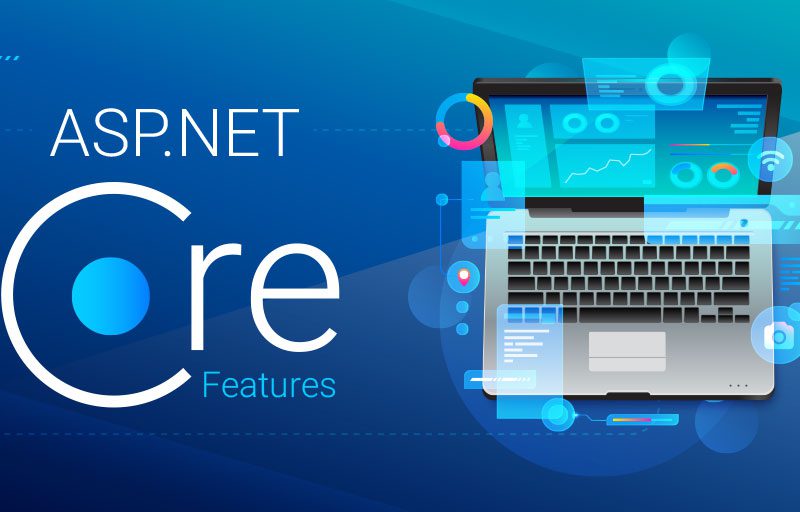Understanding the distinct advantages and uses of each framework is important when deciding between ASP.NET and Node.js for web development. Microsoft’s ASP.NET framework is renowned for its dependability and capacity to create intricate applications quickly. However, Node.js provides a more adaptable and lightweight environment that is perfect for creating scalable, high-performance web applications. In order to assist developers and businesses in making an informed choice, this comparison attempts to highlight their differences, performance metrics, and appropriate use cases.
This analysis will look at things like scalability, language differences, and performance benchmarks to see which technology performs best in different scenarios. When choosing the best option for a given project, factors like security features, community support, and actual adoption by top businesses will all be very important. The intention is to provide developers and businesses with the knowledge to select the technology that best suits their development objectives and operational requirements through a thorough comparison.
Node.js gives developers the best flexibility, performance, and stability of enterprise application development services because it is adaptable, scalable, and loaded with pre-made libraries.
In the Frameworks, Libraries, and Tools category, Node.js is the most widely used solution, per the 2020 Stack Overflow Developer Survey Results. Notable businesses like Groupon, Uber, Netflix, LinkedIn, and Ebay have recently used Node.js to build their solutions.
Furthermore, more people will be drawn to Node.js if it is adopted by the major players. The Node.js community will expand and more projects and jobs will become available as smaller businesses adopt the technology.
Are you curious about how Node.js compares to ASP.NET in business solutions? These eight essential features of enterprise application development services highlight the distinctions between ASP.NET and Node.js as well as the latter’s potential for sophisticated, enterprise-level web applications.
Overview and Introduction to the Technologies
Both Node.js and ASP.NET are strong web development technologies, each with special features and abilities. ASP.NET is a server-side technology that lets programmers create dynamic web services and applications. On the other hand, Node.js is a runtime environment that enables server-side JavaScript code execution. It is a flexible option for contemporary web development because it supports multiple threads and is mobile device optimized. The context for a detailed analysis of these two technologies is established by this introduction.
Node.js: A Brief Overview
The event-driven, non-blocking architecture of Node.js is well known for its ability to manage many threads effectively. Because of this feature, Node.js apps can run as efficiently as possible on mobile devices, which have constrained resources. When creating real-time applications and services that need to be highly responsive and interactive, Node.js is a great option because of its lightweight design and seamless handling of multiple connections at once.
ASP.NET: An Overview
An open-source web application framework called ASP.NET was created with agile software development in mind. It is an effective server-side technology that lets programmers create dynamic, interactive websites. With its extensive toolkit and library, ASP.NET streamlines the development process, allowing for shorter coding times while maintaining the security, scalability, and resilience of applications. Its compatibility for fast-paced development environments is further enhanced by its support for agile software development methodologies.
Language: Node.js based on JavaScript
The previous closed, Windows-specific ASP.NET has been replaced by the new, open-source ASP.NET core. JavaScript is the foundation of Node.js, whereas C# is the primary language used by ASP.NET.
There’s no denying that JavaScript, which depends on Microsoft TypeScript or Facebook’s Flow static type checker, is less powerful than C#, which offers a strict type system and compile-time error checks. Furthermore, with each generation, C# becomes more expressive and efficient.
However, JavaScript is now more widely used than C#. It can be difficult for developers to understand asynchronous programming, but it’s a necessary skill for Node.js mastery.
Node.js provides quick and simple services for developing enterprise applications.
Compared to ASP.NET, Node.js generally provides fewer abstractions, enabling programmers to write code using a multitude of tiny components as opposed to configuring a large number of parameters. Because of this, Node.js allows for greater customization of the code to fit the solution. Third-party and native libraries also help developers.
Several conventions built into ASP.NET assist developers in writing clear and understandable code. Nevertheless, deviating from these conventions necessitates manual configuration, which is not difficult but may take more time.
Node.js’s and ASP.NET’s Scalability
Because its components are divided, Node.js is a great choice for the microservices architecture approach, which offers excellent scalability and stability. Check out our previous post where we go into great detail about how Node.js can improve the scalability of your application. Additionally, Node.js tools like Rollbar and the PM2 process manager make it simple to identify and manage errors, increasing developer productivity.
Stack Overflow, which is fully written in ASP.NET core, is a fantastic illustration of how scalable ASP.NET can be. Large amounts of user data can be analyzed with great efficiency thanks to the framework, and scaling up requires fewer additional machines than you might think.
The community for enterprise application development’s support
A quick look at Stack Overflow reveals that there is a larger development community surrounding ASP.NET. However, after seeing the open source projects on GitHub and their activity, you might reconsider, as Node.js is clearly superior. Both frameworks have sizable and vibrant communities in which developers can find a wealth of helpful information.
The accessibility of ready-to-use solutions
Small, reusable libraries form the basis of Node.js, enabling quicker development with less custom code written. Although astute developers are aware that the quality of these packages varies, they nevertheless gain from and contribute to the community by creating and disseminating these libraries.
With a wealth of pre-built solutions, the new ASP.NET core provides a respectable scalable framework that speeds up development for developers.
Which tools does a developer use for ASP.NET and Node.js?
While Sublime or Mono Develop can be used by developers to make ASP.NET work, Visual Studio, ReSharper, and Web Essentials are the recommended tools.
Visual Studio Code or Rider are also supported by ASP.NET Core 1 and 2. Development, refactoring, and debugging are made quick and simple by comprehensive editors/IDEs and first-rate code analysis support.
Although you can use any text editor to develop with Node.js, going with Webstorm (the IDE for Node.js) is a wise choice because Webstorm provides robust support for Node.js, which in turn leads to increased productivity.

Where do you host Node.js and ASP.NET?
ASP.NET applications can be hosted on ASPHostPortal. We do provide both ASP.NET Core and Node.js with affordable price.
Differences in app performance
In contrast to alternative solutions, improved application performance was mentioned by 50% of participants in the Node.js 2017 User Survey.
Node.js operates on the fastest JavaScript engine (V8) and has exceptional multitasking capabilities. Additionally, compared to alternative solutions, it allows apps to handle more requests concurrently. Furthermore, Node.js won’t cause your server to lag when you send a lot of requests.
ASP.NET core 2.0 is the fastest of the popular mainstream web frameworks; it is 15% faster than the first edition, which was already several times faster than the previous Windows-based version.
Advantages of Each Technology
The distinct benefits that each web development technology offers must be acknowledged when comparing and contrasting them. Because they address distinct needs and scenarios, Node.js and ASP.NET are distinguished by their unique advantages. Comprehending these can assist developers and companies in making well-informed decisions that are customized to the particular requirements of their projects.
Why Choose Node.js?
The main factor in selecting Node.js is how well it streamlines the development process, especially when comparing the framework to alternative solutions. Because of its event-driven architecture, which is made to manage asynchronous operations, it is perfect for applications that need to function in real time.
High Performance and Quick Development Cycle
High performance is a well-known feature of Node.js, particularly when managing several requests at once. This feature keeps applications responsive and effective, which speeds up the development process. Node.js’s non-blocking I/O operations enable it to process requests instantly, which is essential for applications that require real-time updates and data processing.
Rich Ecosystem and Cross-Platform Compatibility
For developers, the extensive Node.js ecosystem is a gold mine, full of tools and libraries that make creating sophisticated apps easier. The rich ecosystem here fosters innovation and productivity. Additionally, Node.js facilitates cross-platform apps, allowing programmers to design software that functions flawlessly on a variety of operating systems. Node.js’s versatility in handling data-intensive operations is further enhanced by its strong file handling capabilities.
The Benefits of Opting for ASP.NET
ASP.NET is notable for its strong framework, which fits your project’s needs perfectly, especially if it calls for a high level of security or complex business logic. Because of its integration with the.NET ecosystem, developers can create dynamic web applications more quickly and effectively with a wide range of tools.
Reduced Coding Time and Powerful Customization Options
Because ASP.NET offers a large library of reusable code, developers can avoid writing boilerplate code for common tasks, which drastically reduces coding time. This effectiveness speeds up the development process and provides strong customization choices to match the particular requirements of a project. The framework’s ability to support a variety of programming languages lends flexibility to its appeal, allowing developers to choose the language that best fits their needs or skill set.
Security and Continuous Monitoring
The strong security features of ASP.NET are among the strongest arguments in favor of using it. To shield apps from vulnerabilities and unwanted access, the framework includes built-in security features like authorization and authentication. Furthermore, ASP.NET’s infrastructure facilitates ongoing monitoring, which makes it possible to identify and address any problems immediately, protecting the dependability and security of the application.
Real-World Adoption by Leading Companies
Leading businesses have adopted Node.js and ASP.NET in a practical manner, demonstrating their viability and efficacy in solving real-world business challenges. Because of each technology’s distinct advantages, a variety of businesses have selected it, proving its suitability for a wide range of applications and industries.
Companies That Leverage Node.js
A number of forward-thinking businesses, such as Siemens Healthineers, have adopted Node.js to power their digital solutions. The decision illustrates how well the technology can handle the requirements of contemporary, real-time applications across a range of industries.
LinkedIn, Netflix, and Uber
Notable examples of businesses that have used Node.js to achieve real-time updates, improving user experience and operational efficiency, are Uber, Netflix, and LinkedIn. This adoption demonstrates how Node.js can support high-performance applications that need to process and deliver data instantly.
Enterprises Utilizing ASP.NET
Many well-known businesses have chosen to use ASP.NET due to its scalability and dependability for enterprise-level applications.
Microsoft, Dell, and Cisco
Large companies such as Microsoft, Dell, and Cisco have used ASP.NET, particularly for Windows-based applications. This selection emphasizes how easily ASP.NET can be integrated and how well-suited it is for creating scalable, safe web applications inside the Microsoft ecosystem.
Addressing Frequently Asked Questions
In the field of web development, there are frequently discussions about which framework—Node.js or ASP.NET—is better for a given project type. By answering these commonly asked questions, it will be easier to make decisions that are tailored to the unique requirements of enterprise-level applications and startups.
Selecting Between Node.js and ASP.NET for Startups
The decision between ASP.NET and Node.js for startups is influenced by a number of variables, such as the nature of the project, the experience of the development team, and long-term goals. Node.js is frequently chosen because of its scalability and short development cycle, which are essential for startups trying to quickly prototype and adjust to market demands. On the other hand, ASP.NET might be the better option for projects that need a lot of Microsoft ecosystem integration and strong security features.
The Functions of ASP.NET and Node.js in the Development of Enterprise Applications
The development of enterprise applications makes extensive use of both ASP.NET and Node.js. Building scalable, high-performance applications with Node.js is ideal, especially for those that need real-time functionality. However, ASP.NET is frequently selected for sophisticated, enterprise-level web applications due to its strong security, large library, and smooth interaction with other Microsoft services. In the end, the choice will depend on the particular needs and objectives of the enterprise project.
Migration Factors: Choosing Between ASP.NET and Node.js
When thinking about switching from one technology to another, like going from Node.js to ASP.NET or the other way around, it’s important to assess how the underlying architectures differ and whether current codebases are compatible with the target platform. This transition can be made much easier by using a cross-platform framework, which acts as a bridge between various coding environments. To guarantee a seamless migration process, developers must take into consideration variations in the application’s architecture, libraries, and language syntax. This frequently entails rewriting a sizable chunk of the application to match the new platform’s paradigms and performance requirements.
Future Prospects and Evolution
The server-side development landscape is being shaped by the ongoing evolution of both ASP.NET and Node.js. Node.js’s lightweight, event-driven architecture makes it an excellent choice for managing microservices and real-time applications. Because of its extensive feature set and sturdy framework, ASP.NET is still a viable option for sophisticated online platforms and enterprise-level applications. Both technologies appear to have a bright future ahead of them, with improvements concentrated on developer productivity, scalability, and performance.
The Future of ASP.NET and Node.js in Web Development
In the future, web development will continue to see Node.js and ASP.NET follow paths characterized by innovation and adaptation to new trends. Node.js is anticipated to solidify its standing in the development of scalable, real-time web applications, while ASP.NET is expected to broaden its appeal with improvements in.NET Core and cross-platform development capabilities. Both technologies are evolving to meet the needs of contemporary web development, which includes incorporating AI and machine learning features. This suggests that developers have a bright and flexible future ahead of them.
New Developments and Technologies Affecting ASP.NET and Node.js
Emerging trends and technologies are always changing the web development landscape, and both ASP.NET and Node.js are evolving to meet these new challenges. Containerization and serverless architectures are two examples of how both platforms are developing to give developers more effective ways to create and run applications. Another area in which AI and machine learning are progressing is the integration of these technologies into web applications. These technologies provide libraries and tools that enable the integration of sophisticated functionalities into web projects, thereby influencing the direction of web development.
Making the Final Decision: Node.js vs ASP.NET
For web development projects, deciding between Node.js and ASP.NET requires taking into account various aspects such as the project’s dynamic nature, the desired technology stack, and the application’s particular requirements. Because of its event-driven, non-blocking I/O model, which allows for effective management of concurrent connections, Node.js is an excellent choice for developing large-scale web applications and real-time applications. With its strong framework based on object-oriented programming, ASP.NET is perfect for developing enterprise applications since it provides strong memory management stages, strong development tools, and an extensive entity framework for data access. The choice should be in line with the long-term technology plan, the development team’s experience, and the project’s objectives.
Important Things to Keep in Mind for Startups and Small Businesses
While choosing between ASP.NET and Node.js, enterprises and small businesses need to carefully consider their options. Node.js’s agility and speed of development may appeal more to startups and small businesses because it allows for quick prototyping and quick adjustments to meet market demands. Enterprises, on the other hand, might give priority to ASP.NET’s stability, security, and scalability, particularly for applications that need to integrate with current Microsoft technology stacks or process complex data. The decision ultimately comes down to particular business requirements, resource availability, and strategic objectives.
Strategic Guidance for the Selection and Application of Technology
Analyzing the needs of the project—both present and future—is crucial when choosing a technology for web development. Take into account elements like the application’s complexity, the anticipated load on the system, and the team’s level of technological expertise. Evaluating each platform’s ecosystem—which includes the libraries that are available, the community support that is offered, and the development tools that are accessible—is also essential. Careful thought and strategic planning will guarantee that the technology selected fits the project’s goals and provides a long-term route for advancement.
Final Thoughts: Using ASP.NET and Node.js to Their Full Potential
To sum up, Node.js and ASP.NET are both strong tools for creating dynamic websites and applications, but they each have pros and cons of their own. While ASP.NET offers strong tools and frameworks for creating intricate, enterprise-level applications, Node.js offers a scalable, event-driven architecture perfect for real-time applications. The requirements of the project, developer experience, and strategic goals should all be taken into consideration when selecting between these technologies. Through a meticulous assessment of their respective advantages and disadvantages, developers and companies can leverage these platforms’ capabilities to accomplish their web development objectives.
A Synopsis of the Comparative Study
It is evident from this comparison study that each of ASP.NET and Node.js has specific advantages and good use cases. Node.js is unique in that it can manage large amounts of real-time data effectively, which makes it appropriate for applications that need real-time data updates. Because of its extensive framework and support for object-oriented programming, ASP.NET is a great choice for creating enterprise-level software and complex online applications. Making an informed choice about the best technology for web development projects requires an understanding of these differences and how they relate to the objectives of the project.
Final Recommendations for Developers and Businesses
When choosing between ASP.NET and Node.js, businesses and developers must consider the needs of the project in comparison to the capabilities of each technology. Node.js comes into its own with its non-blocking I/O model, which makes it ideal for developing real-time applications such as chat apps or for managing multiple tasks at once in your development process. However, ASP.NET is the best option for businesses that require scalable, secure apps that are reliable. Knowing the subtle differences between each technology will help you make a decision that supports your strategic objectives.
Which is better Node.js or ASP.NET
In conclusion, the following factors may be taken into account when deciding between ASP.NET and Node.js:
- It’s important to think about your enterprise application’s future when selecting the framework.
- Industry heavyweights are abandoning ASP.NET in favor of Node.js, which is generating even more hype. This trend is widely perceived as a sign of the framework’s slow but inevitable demise.
- Do you want to benefit from a dynamic ecosystem that offers a wide range of pre-made components for various use cases? Particularly for microservices, web apps, real-time apps (instant messaging, live chat), and e-commerce transaction software, Node.js is a reliable choice.
- However, ASP.NET offers a large collection of components for effectively creating high-quality applications, so developers who want to take advantage of C#’s advantages can choose this option.
- Because of its open-source architecture, sizable user base, and abundance of free tools, ASP.NET is also a fantastic option for MVPs and small applications.

Javier is Content Specialist and also .NET developer. He writes helpful guides and articles, assist with other marketing and .NET community work



